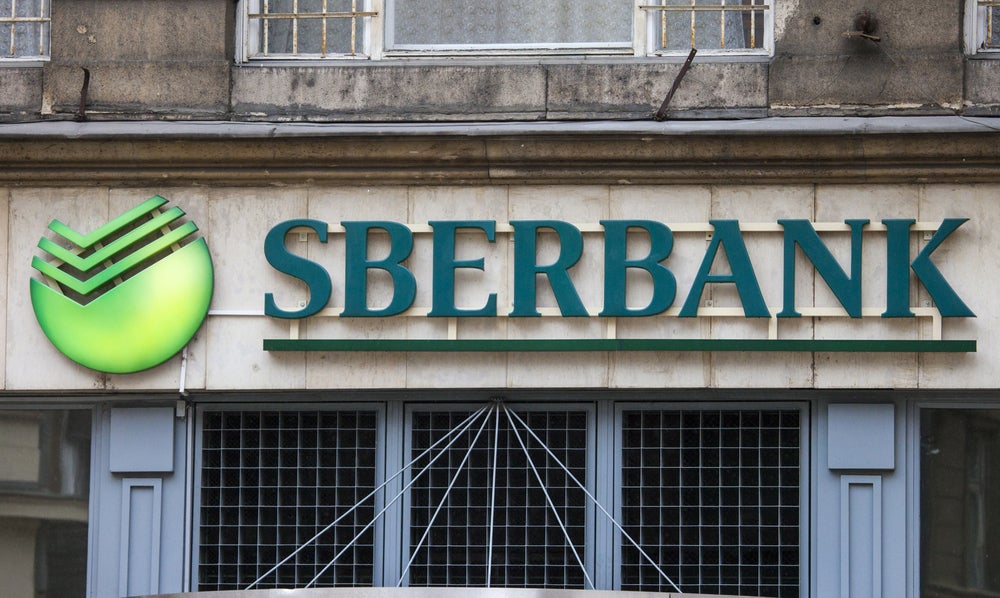
After a number of difficult years, 2013 marked a turning point in the fortunes of the Polish leasing industry and indications are that this positive trend will continue as investment sentiment improves. Paul Golden reports
According to the Polish Leasing Association, the value of assets financed last year was far above the record level of 2008, when the leasing market was worth PLN32.9bn (7.9bn). The acceleration from quarter to quarter in the value of movable assets financed by leasing companies in 2013 was stark – from a 1.3% year-on-year decline in the first quarter, the market rose by 5.8% during the second quarter, 16% between July and September and 30.2% for the final three months of the year.
Truck leasing recorded the most significant growth, rising from a flat market in the first three months of the year to 64.4% growth in the final quarter. The most notable factor in this growth was the implementation of the Euro 6 engine standard, alongside economic recovery across the Eurozone.
The high growth rate for light vehicles was influenced by an increasing number of registrations of new cars (related to the renewal of mass leasing contracts for cars with cargo partition in the years 2009-2010) and uncertainty as to the final solutions for VAT on the purchase of cars.
In the first half of last year the machinery sector was adversely affected by the collapse in the construction sector. However in the second half of 2013 the improvement in the economic situation was significant enough to increase the importance of machinery.
Out of 30 companies reporting their results to the Polish Leasing Association last year, only nine recorded negative growth. Eight companies saw business increase by more than 20% and a further 14 companies grew their revenues in excess of 10%.
This was a marked improvement on the situation in 2012, when six companies increased turnover by more than 20% but, of the 33 companies reporting data to the Polish Leasing Association, 23 recorded negative growth.
How well do you really know your competitors?
Access the most comprehensive Company Profiles on the market, powered by GlobalData. Save hours of research. Gain competitive edge.

Thank you!
Your download email will arrive shortly
Not ready to buy yet? Download a free sample
We are confident about the unique quality of our Company Profiles. However, we want you to make the most beneficial decision for your business, so we offer a free sample that you can download by submitting the below form
By GlobalDataThe Polish Leasing Association observes less impressive results from companies focused on financing construction machinery and, to a lesser extent, companies focused on service within the agricultural sector. Good results in 2013 involved companies financing mainly investments of large business, particularly those belonging to bank groups that are the leading players in the banking sector.
The total value of the active portfolio in Poland amounting to PLN64.5bn (PLN56.5bn for movables and PLN8bn for real estate) is comparable to the value of the investment in loans granted by banks to companies (PLN83.9bn as at 30 November 2013). Leasing is still – next to credit – the main external source of financing investments in the Polish economy.
The value of the active portfolio grew 4.9% last year, an increase of PLN3bn. National Bank of Poland money supply data indicates the progressive improvement of lending activity of banks in the area of investments, with the balance of investment loans in banks increasing by 6.2%.
Objectives for the Polish Leasing Association this year include: monitoring proposed changes to consumer credit and VAT with regards to the right to deduct VAT on company cars; bankruptcy and restructuring law; environmental protection law; and traffic law in terms of publicly available data on vehicles.
It also plans to initiate public consultation on possible changes to the Civil Code in respect of lease, and to continue discussions with the Ministry of Infrastructure and Development and the Ministry of Agriculture on the use of leasing in the EU budget for the years 2014-2020.
The Polish Vehicle Rental and Leasing Association reports significant growth in the second quarter of last year, with nearly 70% of total annual growth generated in the third and fourth quarters. Key developments for the organisation (whose 17 member companies had 116,539 vehicles in leasing and management at the end of last year, an increase of 11% or 11,562 vehicles compared to the same period in 2012) include the development of environmental activities and services.
Looking ahead to the remainder of this year, the Polish Leasing Association expects a gradual improvement of the economic situation in Poland and a revival of the construction industry after its 8.9% decline in 2013. It also predicts continued growth in the share of loans in financing fixed-assets other than machinery (mainly vehicles) and higher demand for used trucks after the implementation of Euro 6.
Negative factors include significant purchases of vehicles with Euro 5 from the second half of 2013 reducing the level of purchases of new cars, especially in the first half of the year. The association expects 2014 to be a year of transition in respect of EU funds, which will result in lower demand for financing agricultural machinery with loans (a decrease of 25%) and financing medical equipment (down 15-20%).
According to Rafal Piskorski, country manager De Lage Landen Poland, the Polish leasing market has never been in better shape.
"We have fully recovered the volumes we lost in 2009/2010 and exceeded the best-ever results from 2007/2008," Piskorski says.
"On top of the 12% growth of the leasing market during 2013 we see even further growth in 2014, up to 45% quarter-on-quarter. We have recently observed some consolidation of the market as Getin acquired VB Leasing, which will cause a change in the leadership position in 2014 and add to market competitiveness."
In May, the management board of Getin Holding confirmed that it had concluded a conditional agreement with VB-Leasing International Holding to purchase 100% of the shares in VB Leasing Polska. VB Leasing Polska is a leading player in the heavy transport segment of the lease market and ranks among the top ten lease companies in the country, operating through three branches and 13 units and employing more than 120 sales representatives. A spokesperson for Getin refused to comment on how the deal would affect its business in Poland.
Piskorski says the market is split between banking groups consolidating leasing activity with their core banking business, treating leasing as an extra product line for their customers; captive finance companies mainly focusing on automotive and construction assets; and vendor finance companies supporting global partners and local distributors.
"This split should assure more customer focus and further industrial specialisation, providing a unique selling proposition for partners and customers," Piskorski adds.
"Leasing market growth is mainly dominated by financing vehicles, which historically accounts for more than 50% of the overall leasing market. Expansion in that segment reached 23% in 2013 and was the main driver of growth for the whole industry. Machinery and equipment financing was pretty stable with modest 3.5% growth, while the construction segment reported a 15% downturn as a result of the continuation of the crisis in the construction market after the 2012 EU investment boom."
Piskorski anticipates that all sectors of the leasing industry will record growth this year, supporting the view that an investment boom is taking place and that the recovery of the Polish economy is gathering pace.
He says: "Traditional vehicles financing is up by 64% this year due to a number of factors, including a window of opportunity for full VAT deduction on company passenger cars and replacement of Euro 5 engines by Euro 6.
"The construction segment has grown by 58%, which indicates that this sector will recover this year. Materials handling is up by 20%, food processing equipment by 65% and metal processing and molding machines by 48%. Medical equipment and agricultural equipment has experienced a 9% growth rate. However, due to a foreseen new round of EU funding we may predict that the agriculture equipment sector will pick up strongly next year."
When asked whether the Polish government has taken any direct or indirect action to support the lease finance industry, he states that the industry is challenged by new capitalisation rules – although the positive news is that companies providing 80% of sales based on leasing will be exempt from that rule.
Piskorski highlights the recent success of the Polish Leasing Association supported by Lewiatan (a confederation established in January 1999 to represent private employers’ associations and individual companies) in managing to ensure that loans provided for financing assets being subject of EU grants will be exempted from the capitalisation rules. However, he adds that car fleet management companies will be directly impacted by the new regulations.
In terms of the company’s efforts to encourage growth in leasing activity in Poland, he refers to a continued focus on the core vendor finance model.
He says: "On top of our existing cooperation agreements with international partners we will strengthen our presence in the health care and office technology market. We will serve local dealers and distributors offering private label programmes, and finally we will launch a web-based front office system, allowing our partners to get online credit approval for financing their customers and generate lease/loan contracts on the spot, enhancing sales processes."
Marcin Koscinski, CEO ING Lease Poland, agrees that the indications are that 2014 will see a continuation and acceleration of the market recovery that started last year.
Koscinski says: "The main reasons for this are the increasing pace of investment in the Polish economy, as well as the fact that an increasing number of clients appreciate the value of leasing as a primary source of financing. The second half of last year was especially good for leasing companies as businesses decided to prepare for the forthcoming expansion of the economy."
Commenting on which sectors of the lease market are performing particularly well, he refers to dynamic growth in vehicles, especially vans and delivery trucks. This growth is attributed to the fact that small business have started to invest in their business, in addition to VAT changes introduced at the beginning of this year which further stimulated demand for vehicles.
According to Koscinski (who expects the lease market in Poland to expand by around a quarter in 2014), the role and market share of independent lease companies has been reduced over recent years.
"Bank-owned leasing companies control around 80% of the market and this is increasing. The role of manufacturer-owned companies is also becoming more significant and these lessors are active and direct competitors for bank-owned companies. We promote leasing as the simplest and the most convenient source of financing, especially among small and medium companies."
Despite the observations of the Polish Leasing Association, the agricultural equipment market has been an important driver of market growth for the past few years according to Robert Samsel, head of sales SGEF Poland. "Financing for the agricultural sector increased from PLN1bn in 2008 to PLN32bn in 2013," Samsel says. "The growth is attributed mostly to EU subsidies for the purchase of new agricultural equipment."~
Samsel agrees that the market is dominated by companies owned by Polish or European banks. "Over the last few years we have noticed local banks taking over some of the leasing companies previously owned by various leasing groups in Europe. Bank-owned leasing entities dominate -they put a strong emphasis on cross-selling and they are aggressive in terms of pricing. We also have captives dedicated to financing products of their own groups plus a few companies focused mostly on vendor business. Due to the size of the Polish market most of the major European players have a presence here."
Samsel describes the Polish leasing industry as being well regulated in regard to the Polish Civil Code. "It’s not difficult to conduct leasing business in Poland – it’s a pretty transparent industry. The leasing association liaises with government agencies in relation to proposed changes that might affect the industry. However, it’s important for the industry that we will be eligible to participate in financing clients who want to benefit from EU subsidies – so far some of the programmes only allow banking financing," Samsel concludes.
According to the Polish Leasing Association, the value of assets financed last year was far above the record level of 2008, when the leasing market was worth PLN32.9bn (7.9bn). The acceleration from quarter to quarter in the value of movable assets financed by leasing companies in 2013 was stark – from a 1.3% year-on-year decline in the first quarter, the market rose by 5.8% during the second quarter, 16% between July and September and 30.2% for the final three months of the year.
Truck leasing recorded the most significant growth, rising from a flat market in the first three months of the year to 64.4% growth in the final quarter. The most notable factor in this growth was the implementation of the Euro 6 engine standard, alongside economic recovery across the Eurozone.
The high growth rate for light vehicles was influenced by an increasing number of registrations of new cars (related to the renewal of mass leasing contracts for cars with cargo partition in the years 2009-2010) and uncertainty as to the final solutions for VAT on the purchase of cars.
In the first half of last year the machinery sector was adversely affected by the collapse in the construction sector. However in the second half of 2013 the improvement in the economic situation was significant enough to increase the importance of machinery.
Out of 30 companies reporting their results to the Polish Leasing Association last year, only nine recorded negative growth. Eight companies saw business increase by more than 20% and a further 14 companies grew their revenues in excess of 10%.
This was a marked improvement on the situation in 2012, when six companies increased turnover by more than 20% but, of the 33 companies reporting data to the Polish Leasing Association, 23 recorded negative growth.
The Polish Leasing Association observes less impressive results from companies focused on financing construction machinery and, to a lesser extent, companies focused on service within the agricultural sector. Good results in 2013 involved companies financing mainly investments of large business, particularly those belonging to bank groups that are the leading players in the banking sector.
The total value of the active portfolio in Poland amounting to PLN64.5bn (PLN56.5bn for movables and PLN8bn for real estate) is comparable to the value of the investment in loans granted by banks to companies (PLN83.9bn as at 30 November 2013). Leasing is still – next to credit – the main external source of financing investments in the Polish economy.
The value of the active portfolio grew 4.9% last year, an increase of PLN3bn. National Bank of Poland money supply data indicates the progressive improvement of lending activity of banks in the area of investments, with the balance of investment loans in banks increasing by 6.2%.
Objectives for the Polish Leasing Association this year include: monitoring proposed changes to consumer credit and VAT with regards to the right to deduct VAT on company cars; bankruptcy and restructuring law; environmental protection law; and traffic law in terms of publicly available data on vehicles.
It also plans to initiate public consultation on possible changes to the Civil Code in respect of lease, and to continue discussions with the Ministry of Infrastructure and Development and the Ministry of Agriculture on the use of leasing in the EU budget for the years 2014-2020.
The Polish Vehicle Rental and Leasing Association reports significant growth in the second quarter of last year, with nearly 70% of total annual growth generated in the third and fourth quarters. Key developments for the organisation (whose 17 member companies had 116,539 vehicles in leasing and management at the end of last year, an increase of 11% or 11,562 vehicles compared to the same period in 2012) include the development of environmental activities and services.
Looking ahead to the remainder of this year, the Polish Leasing Association expects a gradual improvement of the economic situation in Poland and a revival of the construction industry after its 8.9% decline in 2013. It also predicts continued growth in the share of loans in financing fixed-assets other than machinery (mainly vehicles) and higher demand for used trucks after the implementation of Euro 6.
Negative factors include significant purchases of vehicles with Euro 5 from the second half of 2013 reducing the level of purchases of new cars, especially in the first half of the year. The association expects 2014 to be a year of transition in respect of EU funds, which will result in lower demand for financing agricultural machinery with loans (a decrease of 25%) and financing medical equipment (down 15-20%).
According to Rafal Piskorski, country manager De Lage Landen Poland, the Polish leasing market has never been in better shape.
"We have fully recovered the volumes we lost in 2009/2010 and exceeded the best-ever results from 2007/2008," Piskorski says.
"On top of the 12% growth of the leasing market during 2013 we see even further growth in 2014, up to 45% quarter-on-quarter. We have recently observed some consolidation of the market as Getin acquired VB Leasing, which will cause a change in the leadership position in 2014 and add to market competitiveness."
In May, the management board of Getin Holding confirmed that it had concluded a conditional agreement with VB-Leasing International Holding to purchase 100% of the shares in VB Leasing Polska. VB Leasing Polska is a leading player in the heavy transport segment of the lease market and ranks among the top ten lease companies in the country, operating through three branches and 13 units and employing more than 120 sales representatives. A spokesperson for Getin refused to comment on how the deal would affect its business in Poland.
Piskorski says the market is split between banking groups consolidating leasing activity with their core banking business, treating leasing as an extra product line for their customers; captive finance companies mainly focusing on automotive and construction assets; and vendor finance companies supporting global partners and local distributors.
"This split should assure more customer focus and further industrial specialisation, providing a unique selling proposition for partners and customers," Piskorski adds.
"Leasing market growth is mainly dominated by financing vehicles, which historically accounts for more than 50% of the overall leasing market. Expansion in that segment reached 23% in 2013 and was the main driver of growth for the whole industry. Machinery and equipment financing was pretty stable with modest 3.5% growth, while the construction segment reported a 15% downturn as a result of the continuation of the crisis in the construction market after the 2012 EU investment boom."
Piskorski anticipates that all sectors of the leasing industry will record growth this year, supporting the view that an investment boom is taking place and that the recovery of the Polish economy is gathering pace.
He says: "Traditional vehicles financing is up by 64% this year due to a number of factors, including a window of opportunity for full VAT deduction on company passenger cars and replacement of Euro 5 engines by Euro 6.
"The construction segment has grown by 58%, which indicates that this sector will recover this year. Materials handling is up by 20%, food processing equipment by 65% and metal processing and molding machines by 48%. Medical equipment and agricultural equipment has experienced a 9% growth rate. However, due to a foreseen new round of EU funding we may predict that the agriculture equipment sector will pick up strongly next year."
When asked whether the Polish government has taken any direct or indirect action to support the lease finance industry, he states that the industry is challenged by new capitalisation rules – although the positive news is that companies providing 80% of sales based on leasing will be exempt from that rule.
Piskorski highlights the recent success of the Polish Leasing Association supported by Lewiatan (a confederation established in January 1999 to represent private employers’ associations and individual companies) in managing to ensure that loans provided for financing assets being subject of EU grants will be exempted from the capitalisation rules. However, he adds that car fleet management companies will be directly impacted by the new regulations.
In terms of the company’s efforts to encourage growth in leasing activity in Poland, he refers to a continued focus on the core vendor finance model.
He says: "On top of our existing cooperation agreements with international partners we will strengthen our presence in the health care and office technology market. We will serve local dealers and distributors offering private label programmes, and finally we will launch a web-based front office system, allowing our partners to get online credit approval for financing their customers and generate lease/loan contracts on the spot, enhancing sales processes."
Marcin Koscinski, CEO ING Lease Poland, agrees that the indications are that 2014 will see a continuation and acceleration of the market recovery that started last year.
Koscinski says: "The main reasons for this are the increasing pace of investment in the Polish economy, as well as the fact that an increasing number of clients appreciate the value of leasing as a primary source of financing. The second half of last year was especially good for leasing companies as businesses decided to prepare for the forthcoming expansion of the economy."
Commenting on which sectors of the lease market are performing particularly well, he refers to dynamic growth in vehicles, especially vans and delivery trucks. This growth is attributed to the fact that small business have started to invest in their business, in addition to VAT changes introduced at the beginning of this year which further stimulated demand for vehicles.
According to Koscinski (who expects the lease market in Poland to expand by around a quarter in 2014), the role and market share of independent lease companies has been reduced over recent years.
"Bank-owned leasing companies control around 80% of the market and this is increasing. The role of manufacturer-owned companies is also becoming more significant and these lessors are active and direct competitors for bank-owned companies. We promote leasing as the simplest and the most convenient source of financing, especially among small and medium companies."
Despite the observations of the Polish Leasing Association, the agricultural equipment market has been an important driver of market growth for the past few years according to Robert Samsel, head of sales SGEF Poland. "Financing for the agricultural sector increased from PLN1bn in 2008 to PLN32bn in 2013," Samsel says. "The growth is attributed mostly to EU subsidies for the purchase of new agricultural equipment."
Samsel agrees that the market is dominated by companies owned by Polish or European banks. "Over the last few years we have noticed local banks taking over some of the leasing companies previously owned by various leasing groups in Europe. Bank-owned leasing entities dominate -they put a strong emphasis on cross-selling and they are aggressive in terms of pricing. We also have captives dedicated to financing products of their own groups plus a few companies focused mostly on vendor business. Due to the size of the Polish market most of the major European players have a presence here."
Samsel describes the Polish leasing industry as being well regulated in regard to the Polish Civil Code. "It’s not difficult to conduct leasing business in Poland – it’s a pretty transparent industry. The leasing association liaises with government agencies in relation to proposed changes that might affect the industry. However, it’s important for the industry that we will be eligible to participate in financing clients who want to benefit from EU subsidies – so far some of the programmes only allow banking financing," Samsel concludes.







